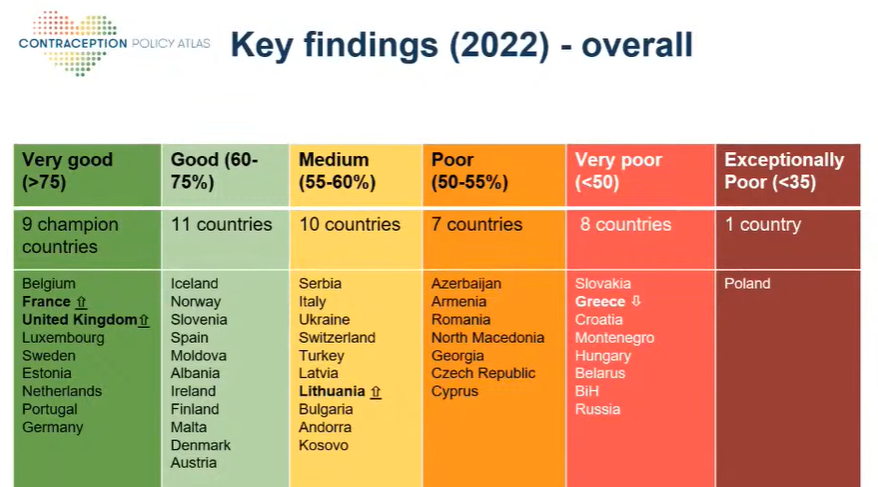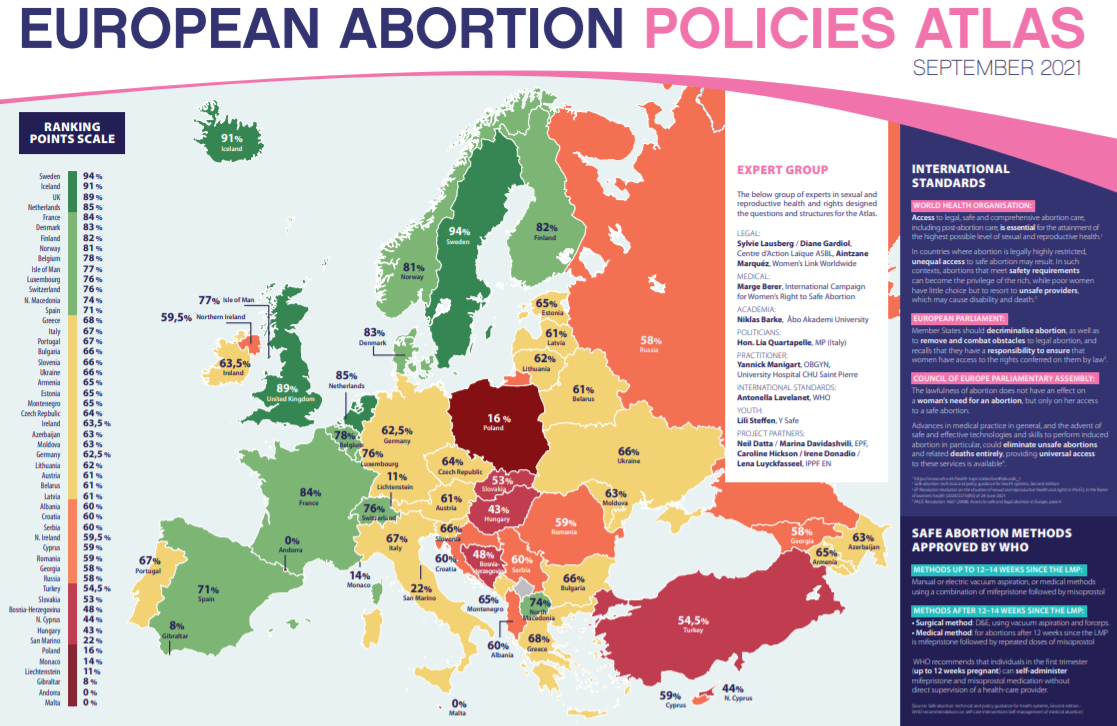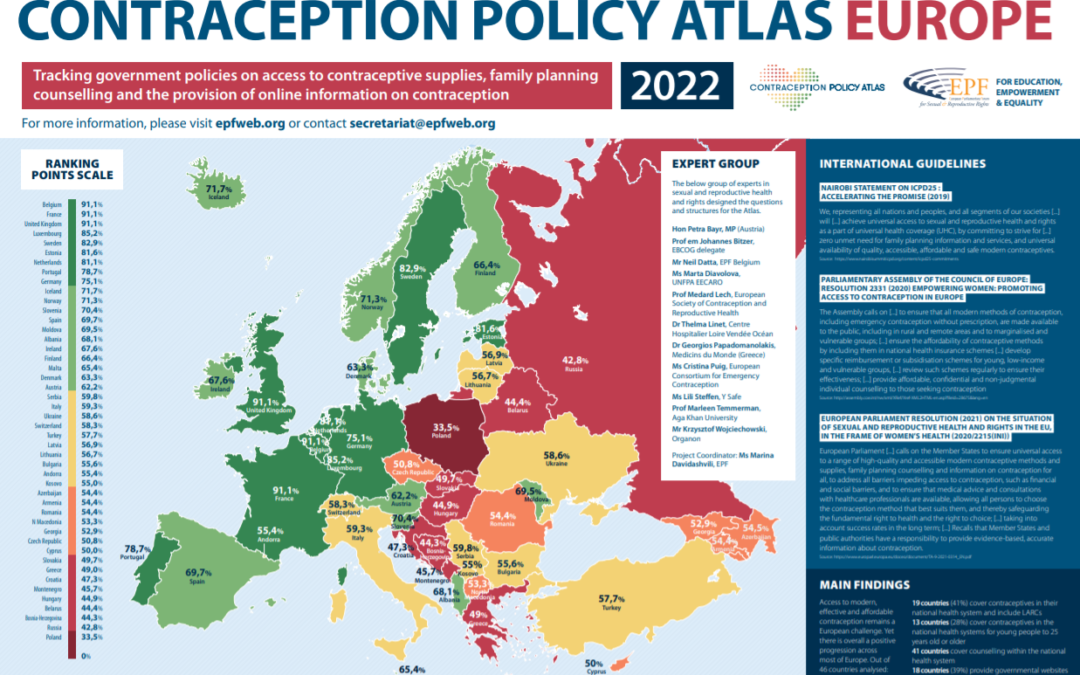Poland has Europe’s worst contraception policies, according to a new ranking by the European Parliamentary Forum for Sexual and Reproductive Rights. The country is the only one on the continent categorised as having “exceptionally poor” policies.
The Contraception Policy Atlas assesses 46 European countries based on a range of measures relating to contraception, including whether their costs are reimbursed by the health system, what kind of counselling is available, and how much information is provided by the authorities.
Each then receives a percentage score based on its results. Poland, with 33.5%, came last, below Russia (42.8%) and Bosnia and Herzegovina (44.3%). At the other end of the scale, Belgium, France, and the United Kingdom (all 91.1%) were found to have the best policies.

Poland was the only country in which emergency contraception was rated as being unavailable. In 2017, the national-conservative Law and Justice (PiS) government made access to the morning-after pill available only on prescription. Women’s rights groups have argued that, in practice, this makes the pills inaccessible for many women.
Among other problems in Poland are a lack of access to gynaecologists, especially in small towns and villages; a lack of reliable sex education; and the high costs of contraceptives, notes business news website Bankier.pl
Speaking at the launch of this year’s Atlas, MEP Irène Tolleret noted that “modern contraception plays a key role in achieving gender equality” and called for “the fundamental right to health and the right to choose for all women to be safeguarded”.
In the last iteration of the Contraception Policy Atlas, Poland was also ranked in last place. However, since then its score has fallen by 1.6 percentage points, which means it was recategorised from having “very poor” policies to being the only country now found to have “exceptionally poor” ones.
In a separate Abortion Policies Atlas published in September by the same European Parliamentary Forum, Poland also ranked among the bottom places. Its score of 16% was above only the tiny countries and principalities of Monaco, Liechtenstein, Gibraltar, Andorra and Malta.
That result followed the introduction at the start of last year of a near-total abortion ban in Poland, which outlawed terminations due to the diagnosis of severe congenital defects in the embryo. Previously, such cases had made up over 90% of all legal abortions in Poland.

Sexual and reproductive rights have become a highly contested issue under the rule of PiS, which strongly advocates the role of the Catholic church as the “repository of the only moral system commonly known in Poland”, in the words of party chairman Jarosław Kaczyński.
Soon after coming to power in 2015, PiS ended state funding for in-vitro fertility (IVF) treatment. It has also often criticised progressive forms of sex education, with a newly proposed education law seen as a means of keeping groups that promote such ideas out of schools.
Although last year’s near-total abortion ban technically stemmed from a decision by the constitutional court, that body is widely seen as being under the influence of the ruling party and it ruled on the issue in response to a request by PiS MPs.

Daniel Tilles is editor-in-chief of Notes from Poland. He has written on Polish affairs for a wide range of publications, including Foreign Policy, POLITICO Europe, EUobserver and Dziennik Gazeta Prawna.




















